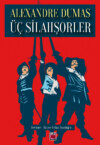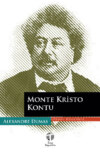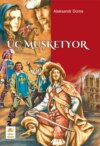Kitabı oku: «The Last Vendée», sayfa 44
"Ah, ça!" cried the captain of the 'Jeune Charles,' "now we'll get at the bottom of this matter! We'll unravel the thread which seems to me pretty well tangled up, or, by the hull of my ship, I'll brush the shoulders of both of you with the cat-o'-nine-tails till the devil himself would pity you!"
"As for me, captain, I have said all I have to say!" exclaimed Courtin.
Picaut quivered at the sound of that voice; he had not yet seen his enemy, and was not aware that he was on board the vessel. He made one step forward to convince himself.
"Courtin!" he cried, "the mayor of La Logerie! Captain, if that man knows our secret, we are lost!"
"Who is he, then?" demanded the captain.
"A traitor, a spy, a sneak!"
"The devil he is!" cried the captain. "You needn't tell it me fifty times before I believe it; for there's something sly and false in the fellow's face which doesn't a bit suit me."
"Ha!" continued Joseph Picaut, "you are not mistaken. He's the damnedest cur and lowest scum in the whole Retz district!"
"What have you got to say to that, come now?" said the captain to Courtin.
"He can't say anything; I defy him!" continued Picaut.
Courtin was silent.
"Well, well, I see I shall have to take strong measures to make you speak, my fine fellow!" said the captain, who, thereupon, pulled from his bosom a little silver whistle hanging to a silver chain, and produced therefrom a prolonged and piercing sound. At the signal two sailors entered the cabin.
At sight of them a diabolical smile crossed Courtin's face.
"Good!" said he; "that's just what I wanted before speaking."
Taking the captain by the arm he led him to a corner of the cabin and said a few words in his ear.
"Is that true, actually true?" asked the captain.
"Easy enough to prove it!" replied Courtin.
"You are right there," said the captain.
At a word from him the mate and the two sailors seized Joseph Picaut, pulled off his jacket and tore open his shirt. The captain then came up to him and gave him a smart blow on the shoulder. Instantly the two letters branded on the Chouan when he went to the galleys were visible on his rugged skin.
Picaut had been so suddenly and violently seized and handled by the three men that he had no time to defend himself in the first instance; but he no sooner perceived the object of the assault than he made the most desperate efforts to escape the clutches by which he was held; of course, however, he was mastered by the triple strength against him and could only roar with rage and blaspheme.
"Lash his hands and feet!" cried the captain, judging of the man's honesty by the tell-tale certificate on his shoulder, "and down with him to the hold between two hogsheads!" Then, turning to Maître Courtin, who gave a sigh of relief, "I beg your pardon, my worthy mayor," he said, "for confounding you with a scoundrel of that kind; but don't be uneasy, I'll guarantee that if any one sets fire to your barn within the next three years it won't be that fellow's hand that applies the match!"
Then, without losing a moment he went on deck, and Courtin, to his great satisfaction, heard him call all hands to get the vessel under way.
Once convinced of the danger he was in, the worthy sailor seemed in so great a hurry to put as much space as possible between the law and himself, that he excused himself to the mayor of La Logerie without even the civility of offering him a glass of brandy, shoved him into the boat with a hasty good-bye, and left him to find his way to the shore as best he could.
Maître Courtin rowed as directly to the bank as the current would let him; and just as the boat's keel touched the sandy shore he saw the "Jeune Charles" slowly moving as sail after sail was hoisted to the breeze.
Courtin then hid himself in the same nook of the rocks where he had found the mate of the vessel fishing, and there he waited.
But not for long; he had hardly been there half an hour before Michel arrived, and he saw, to his great astonishment, that neither of the two women who accompanied him was Bertha. A moment later, and he discovered that they were Mary and Petit-Pierre.
Then, indeed, he congratulated himself on the success of his trick, so wonderfully seconded by chance, and he now bent all his mind to profit by the rare good luck which providence had bestowed upon him.
It will readily be understood that he never lost sight of Michel, Mary, and Petit-Pierre as long as they waited on the shore, and that when the three embarked in the boat to overtake the ship, he watched them with his eyes every inch of their way; that he saw them return and land, and followed them back to Nantes with such precautions that the three fugitives were wholly unaware they were spied upon.
And yet, cautious as Courtin was, it was actually he whom Michel had caught sight of at the corner of the place du Bouffai; it was he who followed the trio to the house which he saw them enter.
When the door into the courtyard closed after them, and they disappeared from sight, he was certain that he now knew the duchess's hiding-place. He passed before the door, and as he did so, he drew from his pocket a bit of chalk and made a cross upon the wall beside it; then, certain that he had the fish in his net, he felt he had only to draw it in and put his hand on a hundred thousand francs.
XXX.
WE AGAIN MEET THE GENERAL, AND FIND HE IS NOT CHANGED
Maître Courtin was not a little excited. As the last of the three persons he had followed from Couéron disappeared into the courtyard a vision danced before his eyes, such as he had seen that night on the moor returning from Aigrefeuille, – a vision that seemed to him the most beautiful of all possible visions: he saw before his dazzled eyes the sparkling of a pyramid of coins, casting their adorable gold reflections into the far, far future.
Only, the pyramid was double the size of the one he had then seen: for his first thought on finding the fish in his net was that he should be a monstrous fool if he let that mysterious man at Aigrefeuille share in the benefits of his catch. He resolved on the spot not to let him know of the discovery, but to go himself straight to the authorities of Nantes and reveal the matter to them. To do him justice, however, it must be said that Maître Courtin did think, in this first flush of his hopes, of his young master, and of the fact that he was about to deprive him of liberty, perhaps of life; but he instantly smothered that sentiment of untimely remorse, and, in order not to let his conscience send forth another such cry, he began to run with all his might toward the Prefecture.
He had hardly gone fifty yards before, just as he turned the corner of the rue du Marché, a man, running from the opposite direction, bolted against him and knocked him to the wall. Courtin gave a cry, not of pain, but amazement, for the man was no other than Monsieur Michel de la Logerie, whom he thought he had left safely behind the green door he had carefully marked with a white cross.
His stupefaction was so great that Michel would certainly have noticed it had he not himself been so preoccupied; but at the moment he was only delighted to see a man he thought to be his friend, and who, as he believed, might now be of use to him.
"Oh, Courtin!" he cried, "tell me, did you come down the rue du Marché?"
"Yes, Monsieur le baron."
"Then you must have met a man running away."
"No, Monsieur le baron."
"Why, yes, you must! It is impossible that you did not see him, – a man who seemed to be on the watch for some one?"
Maître Courtin reddened; but he instantly recovered himself.
"Wait! stop! yes, I did," he said, suddenly resolving to profit by this unexpected chance of averting all suspicion from himself. "There was a man walking in front of me, but I saw him stop at that green door you see down there."
"That's it!" cried Michel, forgetting everything except his desire to discover the man who had followed them. "Courtin, will you give me a proof of your fidelity and devotion? I positively must discover that man. Which way do you think he went?"
"That way," replied Courtin, pointing to the first street his eyes lighted on.
"Come on, then, and follow me."
Michel started to run in the direction Courtin had pointed out; but the latter, as he followed, began to reflect. For an instant he thought of leaving his master to run where he liked, and going himself about the business he was engaged in; but the next instant he thought otherwise and congratulated himself heartily for not following his first idea.
It was evident to his mind that the house had two issues; and as Michel had discovered they were watched, both must have been used to throw the pursuer off the scent. Petit-Pierre had probably gone out as Michel did, by another door. Michel must surely know, by this time, the real retreat where Mary lived with Petit-Pierre; he would therefore stay by Michel, from whom he could undoubtedly obtain the information he wanted; whereas he might lose all by pushing matters too hastily. He therefore resigned himself to the loss of his expected catch and possessed his soul in patience.
He hastened his pace, and rejoined Michel.
"Monsieur le baron," he said, "I must remind you to be cautious. It is getting to be daylight; the streets will soon be full of people, and they will all look at you if you run in this way with your clothes all wet and muddy. If we meet a police-agent he will certainly think it suspicious and arrest you; and what will your mother say then? She has given me so many cautions about you!"
"My mother? why, she thinks me at sea, on my way to England!
"Were you going away?" asked Courtin, with the most innocent air in the world.
"Yes; didn't she tell you so?"
"No, Monsieur de la Logerie," replied the farmer, giving an expression of deep and bitter sadness to his countenance, "no. I see that, in spite of all I have done for you, the baroness distrusts me; and I tell you that cuts me to the heart as a ploughshare cuts into the ground."
"Oh, nonsense! don't trouble about that, my good Courtin; but your change of front has been rather sudden and needs explanation. In fact, when I think of that night you cut the girths of my horse's saddle, I ask myself why you have become so kind and attentive and devoted."
"Oh, hang it, Monsieur Michel! that's easy told. At that time I was fighting for my political opinions; now that all danger of insurrection is over, and I am certain the government I love can't be overthrown, I don't see anything in Chouans and she-wolves but friends of my master; and it makes me sorry to be so little understood."
"Well," said Michel, "I am going to give you a proof that I appreciate your return to better ideas by confiding to you a secret I believe you have already guessed. Courtin, it is probable that the new Baronne de La Logerie will not be the one who, till now, people think it is."
"You mean you won't marry Mademoiselle de Souday?"
"Quite the contrary; only, my wife's name may be Mary, and not Bertha."
"Ah, I'm glad for you! for you know I helped that on as much as I could; and if I didn't do more it was because you wouldn't let me. Ah, ça! have you seen Mademoiselle Mary since you came to Nantes?"
"Yes, I have seen her; and the few minutes I spent with her sufficed, I hope, to secure my happiness," cried Michel, giving way to the intoxication of his joy. Then he added: "Are you obliged to go back to La Logerie to-night?"
"Monsieur le baron ought to feel that I am at his service," replied Courtin.
"Very good; then you shall see her yourself, Courtin; for to-night I'm to meet her again."
"Where?"
"Where I met you just now."
"Oh, that's good!" said Courtin, his face brightening with a satisfaction equal to that on Michel's own face. "That's good! you don't know how happy I am to have you marry according to your own likings. Faith! if your mother consents, you are right enough to take the one you love. You see, now, I gave you good advice."
And the worthy farmer rubbed his hands as though he were on a pinnacle of satisfaction.
"My good Courtin," said Michel, touched by his farmer's sympathy, "where shall I find you this evening?"
"Where you please."
"Didn't you put up, as I did, at the Point du Jour?"
"Yes, Monsieur le baron."
"Well, then, we can pass the day there. To-night you can go with me when I meet Mary, and keep watch for us."
"But," said Courtin, much embarrassed by a proposal which interfered with all his plans, "I've got a good deal to do in town."
"Well, I'll go with you; it will help me to kill time."
"No, that won't do; my business as mayor will take me to the Prefecture, and you mustn't go there. No, do you go back to the inn and keep quiet, and to-night at ten o'clock I'll be on hand to start, – you as happy as a king, and I very glad of your happiness."
Courtin was most anxious to be rid of Michel for the present. The idea of gaining the whole reward for the capture of Petit-Pierre so filled his mind that he was determined not to leave Nantes without knowing the exact amount offered, and laying some plan to obtain it all himself and not divide it with any one.
Michel yielded to Courtin's reasoning, and giving a glance at his muddy clothing he decided to take leave of him then and there and go back to the tavern.
As soon as his young master had left him Courtin made his way to the quarters of General Dermoncourt. He gave his name to the orderly, and after a few minutes' delay he was shown into the presence of the man he came to see.
The general was a good deal dissatisfied with the turn matters were taking; he had sent to Paris plans of pacification, somewhat like those which had succeeded so well under General Hoche. These plans had not been approved; the general saw the civil authority encroaching everywhere on the powers which martial law assigned to the military alone; and his susceptibilities as an old soldier, wounded at every turn, together with his patriotic feelings, made him deeply dissatisfied.
"What do you want?" he said to Courtin, looking him over from head to foot.
Courtin bowed as low as he was able.
"General," he said, "perhaps you remember the fair at Montaigu?"
"Parbleu, as if it were yesterday! and especially the night after it. Ha! that expedition would have been a success, and I might have strangled the insurrection at its birth if a scoundrelly keeper hadn't inveigled one of my troopers. By the bye, what was that man's name?"
"Jean Oullier."
"What became of him?"
Courtin could not help turning pale.
"He died," he said.
"The best thing he could do, poor devil; and yet, I'm sorry too, – he was a brave fellow."
"If you remember the man who defeated the affair, general, it seems strange you have forgotten the one who helped you with information."
The general looked at Courtin.
"Jean Oullier was a soldier, a comrade, and soldiers remember each other; the rest-I mean spies and informers-they forget as soon as possible."
"Very well," said Courtin. "Then I shall have to refresh your memory, general, and tell you that I am the man who informed you of Petit-Pierre's hiding-place."
"Oh, are you?" said the general. "Well, what do you want to say now? Speak out, and briefly!"
"I want to do you exactly the same service over again."
"As for that, times are changed, my good friend. We are no longer among the sunken roads of the Retz region, where a tiny foot, a fair skin, and a soft voice are remarkable because they are rare in the country. Here, all the women look like great ladies; and a score of men of your kind have been to me to sell their mare's-nests. My soldiers have been kept on the qui-vive all the time; we have searched a dozen different places, and all to no purpose."
"General, I have a right to expect you to put faith in me, because the information I gave you first was correct."
"Upon my word," muttered the general, in a low tone, "it would be rather pleasant to discover, all by myself, what that man from Paris with his squads of spies, and sneaks, and pimps, and criminal and detective police can't find out. Are you sure of what you say?" he continued, raising his voice.
"I am sure that within twenty-four hours I shall know the street and the number of the house-"
"Then come and see me."
"But, general, I should wish to know-Courtin stopped.
"Know what?" asked the general.
"I have heard talk of reward, and I wish to know-"
"Ah, true!" said the general, looking at Courtin with sovereign contempt. "I forgot, though you are a public functionary, that you are one of those who don't neglect their private interests."
"You said yourself, general, that we were the ones that were soonest forgotten."
"And you want money to take the place of public gratitude? Well, that's logical. So, then, you don't give, my worthy mayor, you sell, you traffic, you trade in human flesh; and to-day, having something to sell, you come to what you think the best market, – is that it?"
"You have said it. Oh, don't feel embarrassed, general, business is business; and I am not ashamed to attend to mine!"
"So much the better; but I'm not the man you ought to go to. They've sent down a gentleman from Paris who is specially charged to attend to this matter. When you can lay hands on your prey, you had better go to him and sell it."
"So I will, general. But," continued Courtin, "as I did you such a service that first time, don't you feel inclined to give me some reward?"
"My good fellow, if you think I owe you anything I am ready to pay it. Speak out! I'm listening."
"It will be all the easier because I don't ask much."
"Go on."
"Tell me the sum the government has promised to the man who delivers Petit-Pierre into your hands."
"Fifty thousand francs, perhaps; I didn't pay much attention to it, any way."
"Fifty thousand francs!" exclaimed Courtin, stepping back as if he had been struck. "Why, fifty thousand francs is nothing!"
"I agree with you there; it isn't worth while to be infamous for such a sum as that. But you can say that to those it concerns; as for you and me, we have done with each other, I think. Take yourself away. Good-day to you!"
And the general, resuming the work he had laid aside to receive Courtin, paid not the slightest attention to the bows and civilities with which the mayor of La Logerie endeavored to make a proper retreat.
The latter departed far less satisfied in mind than he was when he entered. He had no doubt whatever that the general knew correctly the exact amount of the reward, and he could not reconcile what he had just heard with what the mysterious man at Aigrefeuille had told him, – unless it might be that the said mysterious man was the agent sent by the government from Paris. He now gave up all idea of acting without him, and he resolved, while practising the utmost caution, to let him know as soon as possible what had happened.
Until now the man had come to Courtin; but the farmer had his address, and was directed to write to him if anything important occurred. Courtin did not write; he went in person. After a good deal of trouble he managed to find, in the lowest quarter of the town, at the farther end of a damp and muddy blind alley full of the sordid booths of rag-pickers and old-clothes men, a tiny shop, where, following certain directions, he asked for Monsieur Hyacinthe. He was told to go up a ladder, and was then shown into a small room, much cleaner and more decent than might have been expected from the general appearance of this lair.
There he found the man from Aigrefeuille, who received him far better than the general had done; and with whom he had a long conference.
XXXI.
COURTIN MEETS WITH ANOTHER DISAPPOINTMENT
If the day seemed long to Michel, to Courtin its length was intolerable; he thought that night would never come. And though he felt he ought to keep away from the rue du Marché and the adjacent streets, it was impossible to avoid airing his impatience in their neighborhood.
When evening came, mindful of his engagement with Michel, he returned to the tavern of the Point du Jour. There he found Michel awaiting him eagerly. As soon as the young man saw him he exclaimed: -
"Ah, Courtin, I am thankful to see you. I have discovered the man who followed us last night."
"Hein! what? what did you say?" asked Courtin, making, in spite of himself, a step backward.
"I have discovered him, I tell you!"
"But the man-who is he?" asked Courtin.
"A man in whom I felt sure I might trust; and you would have trusted him too in my position, – Joseph Picaut."
"Joseph Picaut!" repeated Courtin, feigning astonishment.
"Yes."
"Where did you meet him?"
"At this inn, where he is hostler, or rather, where he is playing the part of hostler."
"Why did he follow you? You can't have had the imprudence to tell him your secret? Ah, young man, young man!" exclaimed Courtin; "they may well say youth and imprudence go together. A former galley-slave!"
"That's the very reason. Don't you know why he was sent to the galleys?"
"Damn it, yes! for highway robbery."
"But it was in the time of the great war. However, that's neither here nor there. I gave him an errand to do."
"If I were to ask you what errand, you'd think me inquisitive; and yet it is my real interest in you that makes me ask, and nothing else."
"Oh! I have no reason for concealing the matter from you. I sent him to let the captain of the 'Jeune Charles' know that I should be on board at three o'clock in the morning. Well, no one has since seen Picaut or the horse-and, by the bye," added the young baron, laughing, "the horse was your pony, my poor Courtin; your pony, which I took from the farm and rode to Nantes."
"Oh! oh!" exclaimed Courtin, "then Sweetheart is-"
"Sweetheart is probably lost to you forever."
"Perhaps he has gone back to his stable," said Courtin, who, even in presence of the grand financial horizon which was opening before him, felt a profound regret for the twenty or twenty-five pistoles at which he valued his pony.
"Well, what I want to tell you is, that if, as I suppose, Joseph Picaut followed us he must now be on the watch about the neighborhood."
"What object has he?" inquired Courtin. "If he wanted to deliver you up nothing could have been easier than to bring the gendarmes here."
Michel shook his head.
"No, – do you say no?"
"I say it is not I whom he is after, Courtin; it is not on my account he watched us yesterday."
"Why so?"
"Because the price on my head would not pay him for his treachery."
"But whom else can he be spying on?" said the farmer, calling up all the vacant simplicity he was capable of imprinting on his face and accent.
"A Vendéan leader whom I was anxious to save while making my own escape," replied Michel, beginning to perceive whither Courtin's questions were leading him, – though he was not sorry to admit the latter into half his secret in order to use him when occasion came.
"Ah, ha!" exclaimed Courtin; "and you think he has discovered the hiding-place of the Vendéan leader? That would be a misfortune, Monsieur Michel."
"No; he only got to the outworks, as it were; but I am afraid, now that he is once on the scent, he may have better luck this time."
"This time, – how do you mean?"
"Why, to-night, if he watches us, he will find out I have a meeting with Mademoiselle Mary."
"Mordieu! you're right."
"And that makes me very uneasy," said Michel.
"But I shall be on the watch; and if you are followed I'll whistle in time for you to get away."
"And you?"
Courtin laughed.
"Oh! I-I don't risk anything. My opinions are well-known, thank God; and in my capacity as mayor I can have all the dangerous companions I choose."
"Evil is good sometimes," said Michel, laughing in his turn. "But listen, what time is that?"
"Striking nine from the clock at Bouffai."
"Then, come on, Courtin."
Courtin took his hat, Michel his, and they both went out and were soon at the corner where Michel had met his farmer the night before. The latter stood with his right to the rue du Marché and his left toward the alley into which opened the green door he had marked with a cross.
"Stay there, Courtin," said Michel. "I'll wait at the farther end of this alley; I don't know which way Mary means to come. If she passes you, direct her toward me; if she comes my way, do you move up nearer to us, so as to be ready in case of need."
"Don't trouble about that," said Courtin, as he settled himself on the watch.
Courtin was now at the summit of happiness; his plan had completely succeeded. In one way or another he was certain to come in contact with Mary; Mary was the intimate attendant on Petit-Pierre; he would fellow Mary when she left Michel, and he had no doubt that the young girl, unconscious of being tracked, would herself betray the hiding-place of the princess by going there.
Half-past nine o'clock ringing from all the belfries in Nantes surprised Courtin in the midst of these reflections. Their metallic vibrations were hardly stilled before he heard a light step coming up on his right; he went in that direction, and saw a young peasant-woman wrapped in a mantle and carrying a package in her hand, whom he recognized to be Mary. The young girl, seeing a strange man apparently on the watch, hesitated. Courtin went up to her and made her recognize him.
"It is all right, Mademoiselle Mary," he said, replying to her relieved gesture; "but I'm not the one you are looking for, am I? You want Monsieur le baron; well, there he is, waiting for you down there."
And he pointed with his finger to the alley. The girl thanked him with a gesture of her head and moved hastily away in the direction given her. As for Courtin, convinced that the interview would be a long one, he sat down, philosophically, on a milestone, prepared to wait. From that milestone, however, he could keep the two young people in sight while dreaming of his coming fortune, which now seemed a certainty, – for he held in Mary one end of the thread that would lead him through the labyrinth; and this time, he vowed, the thread should not break.
But he had scarcely begun to set up the scaffolding of glorious dreams on the golden clouds of his imagination, when the two young people, after exchanging a few sentences, returned in his direction. They passed in front of him; the young baron had Mary on his arm and was carrying the little package the farmer had lately seen in Mary's hand. Michel nodded to him.
"Ho, ho!" thought Courtin, "is it going to be as easy as this? There's absolutely no credit in it." And he followed the lovers on a sign from Michel, keeping at a short distance behind them.
Presently, however, he began to feel a slight uneasiness. Instead of going to the upper town, where Courtin felt instinctively that the princess was hidden, the pair turned down toward the river. The farmer followed their movements with deep anxiety. Soon, however, he began to fancy that Mary had some errand in that direction, and that Michel was only accompanying her.
Nevertheless, his anxiety again deepened when, on turning the corner of the quay, he saw the young pair making straight for the tavern of the Point du Jour, which they presently entered. Unable to restrain himself any longer he ran hastily forward and overtook the baron.
"Ah, here you are, – just in time!" said Michel.
"What is it?" asked the spy.
"Courtin, my dear fellow, I'm the happiest man on earth!"
"Why so?"
"Quick! saddle me two horses!"
"Two horses?"
"Yes."
"And Mademoiselle Mary? don't you mean to take her back?"
"No, Courtin, I shall carry her off!"
"Where?"
"To Banl[oe]uvre; where we shall make some plan to get away together."
"But will Mademoiselle Mary desert-"
Courtin stopped short; he was about to betray himself. But Michel was much too happy and excited to be distrustful.
"Mademoiselle Mary will not desert any one, my dear Courtin; we are to send Bertha in her place. Don't you see that I can't be the one to tell Bertha I do not love her?"
"Then who will tell her?"
"Don't trouble yourself about that, Courtin; somebody will tell her. Now, quick! saddle those horses!"
"Have you any horses here?"
"No, none of my own; but there are always horses, don't you understand, for those who travel for the good of the cause."
And Michel pushed Courtin toward the stable, where, in fact, two horses were munching their oats as if awaiting the young people.
Just as Michel was putting the saddle on the second horse the master of the inn came down, followed by Mary.
"I come from the South and am going to Rosny," Michel said to him, continuing to saddle one of the horses, while Courtin was saddling, but more slowly, the other. Courtin heard the password, but did not comprehend it.
"Very good," said the master of the inn, nodding his head in sign of intelligence.
Then, as Courtin seemed rather behindhand, he helped him to saddle the other horse and rejoin Michel.
"Monsieur Michel," said Courtin, making a last effort, "why go to Banl[oe]uvre instead of to La Logerie? You would be more comfortable at my house."
Michel questioned Mary by a look.
"Oh! no, no, no!" she said. "Remember, my dear friend," she whispered, "that Bertha will be certain to return there to get news of us, and to know why the vessel was not at the place agreed upon; and I wouldn't for all the world see her before the friend you know of speaks to her. I think I should die of shame and grief if I saw her just now."
At Bertha's name, which he overheard, Courtin raised his head as a horse raises his to the sound of trumpets.
"Mademoiselle does not want to go to La Logerie?" he said.
"But, Mary," said Michel, hesitating.
"What?" asked the girl.
"Who will give your sister the letter that summons her to Nantes?"
"As for that," said Courtin, "it isn't hard to find a messenger. If there is anything you want said or done, Monsieur Michel, I'll undertake it."
Michel hesitated; but he, like Mary, dreaded Bertha's first outbreak of anger. Again he looked at Mary; she replied with an assenting sign.
"Then we will go to Banl[oe]uvre; and you must take the letter," said Michel, giving Courtin a paper. "If you have anything to say to us, Courtin, you will find us there for the present."




















